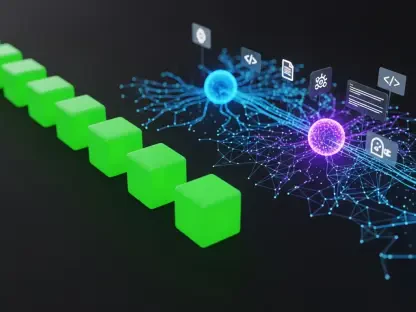Imagine walking into a tech company where artificial intelligence (AI) isn’t just a futuristic concept—it’s integrated into daily operations, driving decision-making, and reshaping products. As AI continues to influence every sector, it’s forging a new paradigm in software development, making certain skills indispensable for developers. What exact abilities do AI developers need today to thrive and navigate this rapidly evolving landscape?
Understanding the Developer’s Role in AI’s New Era
As organizations increasingly embed AI into their frameworks, developers stand at the forefront of innovation. Their role is not confined to coding; instead, it involves assessing how AI technologies can transform business processes and deliver measurable value. These competencies are essential as companies strive for digital transformation, integrating AI within their existing systems to stay competitive.
Why Technical Expertise Matters in AI Development
In today’s tech climate, robust technical expertise is vital. Developers must evaluate AI’s business impact, requiring a deep understanding of both the technology and its commercial applications. This means mastering machine learning and deep learning while translating these concepts into strategies that enhance operations and drive growth. Furthermore, managing data effectively is crucial. With AI systems dependent on large data sets, developers must utilize advanced data management tools, ensuring data quality and optimization in cloud environments.
Seamless integration of AI into current infrastructures cannot be overlooked. Developers are tasked with blending new technologies with established systems, enhancing their functionality without disruption. The importance of developing algorithms that align with existing processes cannot be overstated, as improper integration can negate potential benefits.
Emerging Priorities from Tech Experts
Prominent tech leaders emphasize AI’s safety and reliability, especially in sectors like manufacturing, where failures can have significant consequences. Embracing cloud AI deployments remains a priority, given the shift towards cloud-based solutions for scalability and flexibility. Familiarity with leading platforms like Amazon Web Services and Microsoft Azure is increasingly valued.
Prompt engineering has emerged as a critical skill set in this new age, particularly for large language models (LLM). Developers who can design precise prompts to elicit targeted responses are in demand. Understanding how to manage and seamlessly integrate LLM systems is becoming a cornerstone of advanced AI development.
Broadening the Skill Set with Strategic and Personal Competencies
Beyond technical knowledge, an aptitude for strategic thinking and excellent time management are key. These non-technical skills enable developers to efficiently address complex problems and innovate effectively. Adaptability is equally crucial, as AI’s swift evolution requires comfort with ambiguity and unexpected challenges.
Scenarios frequently arise where developers need to adjust strategies rapidly, demonstrating resilience and insight. Such situations highlight the importance of not only technical acumen but also the ability to navigate change fluidly, ensuring continued advancement in AI applications.
Paving the Way for AI Integration: Conclusion
Reflecting on the spectrum of skills crucial for AI developers, tech companies are poised to seek professionals who fuse technical expertise with strategic insight. In this dynamic environment, seizing opportunities to align AI with business objectives becomes paramount. Developers, positioned at the intersection of technology and business, play a critical role in driving innovation and value. As AI technologies continue their rapid advancement, the call to build robust, adaptable, and strategically aligned solutions guides their path forward.









